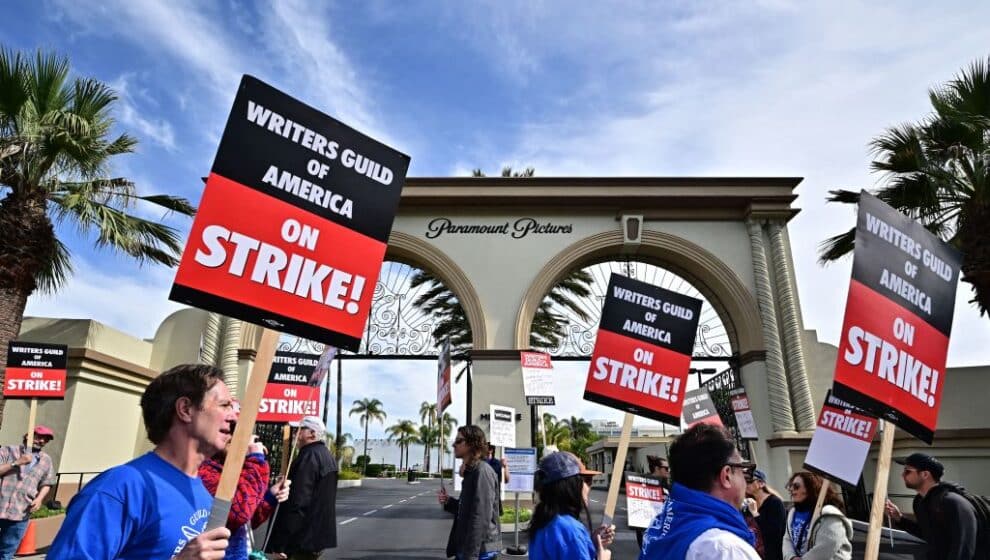Hollywood writers began striking on Tuesday after contract negotiations fell through, as studios look out for investors and profits and writers seek higher pay.
Key Details
- After the writers’ union failed to negotiate a new contract with trade associations, 11,500 film and television writers have committed to a strike.
- Writers are demanding higher minimum pay, more writers on shows, and reduced exclusivity contracts, the Associated Press reports.
- As streaming services have become more common, writers argue that streaming services have negatively affected them, providing too much work for too little pay.
- Depending on the length of the dispute, TV and film productions could be affected.
- On Wall Street, investors are pressuring streaming services to show profits, which could be more difficult if writers receive higher pay.
Why it’s news
In 2007, Hollywood writers were on strike for 100 days, costing Hollywood an estimated $2.1 billion, Reuters reports. That strike, which also centered around wage disagreements, took place before the era of streaming. Now, studios have new factors to consider in negotiations.
Streaming services offer convenience for viewers, but for writers working for these companies, it often means fewer episodes and fewer seasons spaced out over more extended time periods. Unlike cable television, streaming shows have fewer episodes per season, and shows on platforms like Netflix, may only have three or four seasons total, The Hustle reports.
Investment in show production costs has risen, but compensation for writers has not grown during that time. In fact, the average writer’s pay has decreased 4% over the last 10 years, Vox reports.
Jobs on streaming platforms are more numerous than on broadcast, but the pay is significantly different. The median wage of a writer on a streaming show is 46% of a broadcast writer’s salary, The Hustle reports. Because there are fewer episodes per season, writers are paid less.
Similarly to the 2007 strike, writers are also contesting residual pay. Writers, and anyone who worked on the show, receive residual pay whenever a show reruns on television. Streaming has made residual pay a little more complex. While writers receive residuals from streaming services, they argue it is insufficient.
Media companies tell writers that they are also in a difficult position. Many streaming platforms are also publicly traded companies and must answer to investors. Excluding Netflix, few streaming platforms are profitable. These companies are under increasing pressure from investors to show profits.
Because of this, media companies argue that paying writers any more than their current salaries would be difficult.
While writers and media companies hash out a new payment agreement, viewers can expect a few changes in content. Most late-night shows will not be aired until the writers’ strike ends. The current season of most network television shows is likely already written and will continue. However, the next season of some shows may be delayed.
Streaming services will see little change—at least for now. If the writers’ strike continues as long as it did in 2007, viewers could notice a drop in quality or new material produced.

